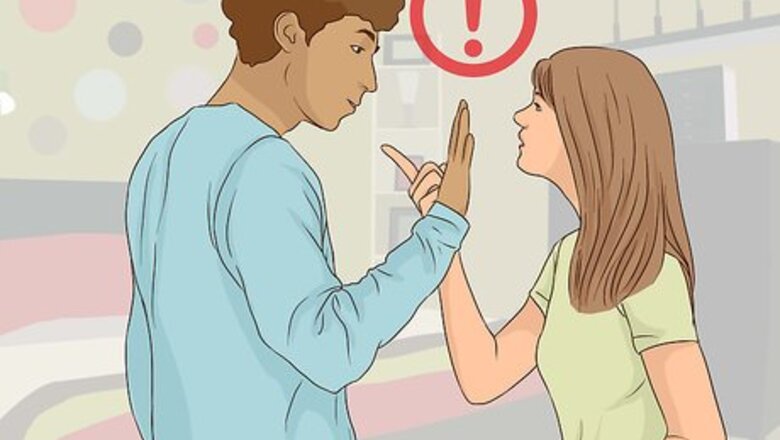
views
Protecting Yourself
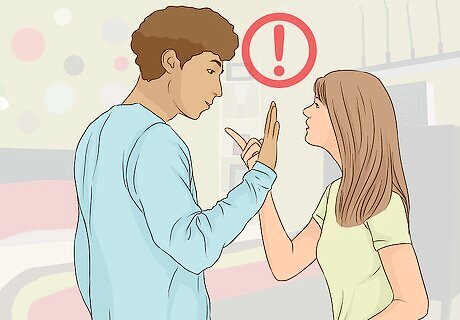
Verbalize your boundaries. There’s a chance that your wife may not see her behavior as abusive. Let her know that you are uncomfortable with the way she treats you. You can do this by speaking up about your discomfort and communicating the consequences if the behavior doesn't stop. For example, if your wife insults you, you might say, “Do not call me names. If you continue to do so, I will leave.” Try to verbalize the boundary when the behavior is happening, so there is no confusion.
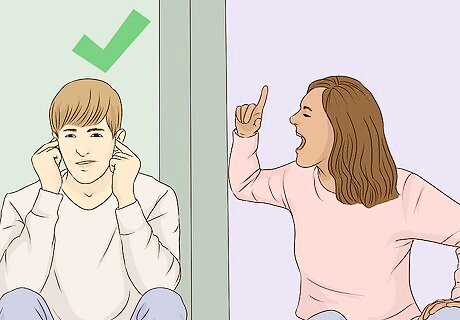
Recognize and avoid your wife's triggers. Most abusive spouses have red flags that signal when the abuse may occur. Your wife, for instance, may be more likely to hit you when she has consumed alcohol. If you spot a trigger or red flag, get away from your wife. Leave the home and go someplace safe. If you cannot leave the home, go to a room with a door that locks where can stay safe until your wife either leaves or calms down.
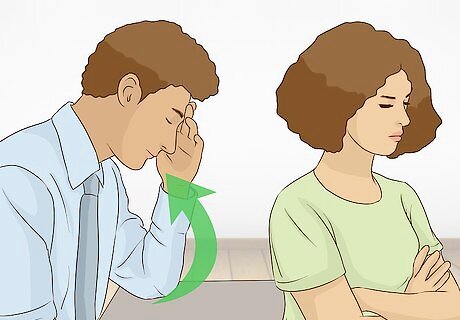
Stay calm. If your wife is being abusive, try to remain calm. One way to relieve tension and calm yourself is by practicing deep breathing. This exercise can be performed in the moment to help you collect yourself during the abuse. Breathe in deeply from your nose, hold the breath briefly, and then exhale through your mouth. Repeat this cycle several times to get better control of yourself.
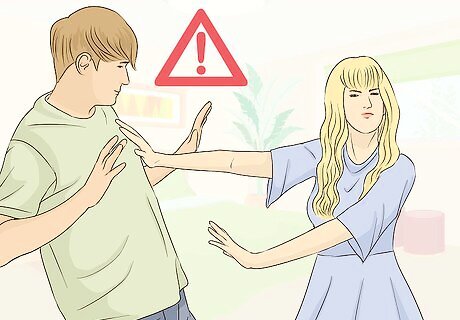
Resist the urge to fight back. Being on the receiving end of abuse may be tough, but try your best not to act out with violence. Retaliation will not help your case. If you are a man who lays a hand on your wife, your chances of proving she's abusive fly out the window. The authorities will already be biased towards her, simply because women are more commonly the victims of abuse. Whether you are a man or a woman, if she tries to engage you in a fight, walk away. If you hurt her, you may be the one who's arrested.

Locate a safe place to go. Identify someplace you can go when your wife is being abusive. This place could be the home of a friend, relative, or neighbor, or a public place like a park or library. If you have children, you might bring them along, especially if you think they are in danger. Letting them listen to continuous arguing is also not good for them.
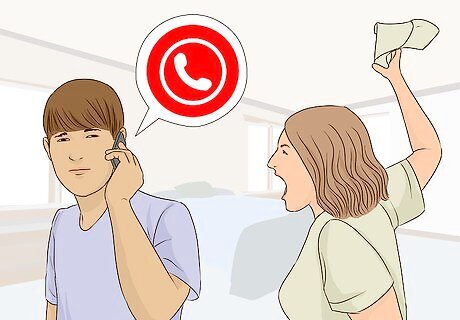
Call the emergency department if you're in danger. If your abusive wife is threatening the lives of you or your children or brandishing a weapon, you need to get help. Don't assume the threats are empty or refuse to call the authorities because you worry they won't believe you. Call the police right away. It's important to take action because reporting the abuse shows your wife that you are serious about carrying out consequences. It also helps you collect evidence because the officer will have to file an official report of the incident. Do not be embarrassed to report that you are being abused by your wife. Abuse can happen to anyone, including men.
Escaping the Abuse
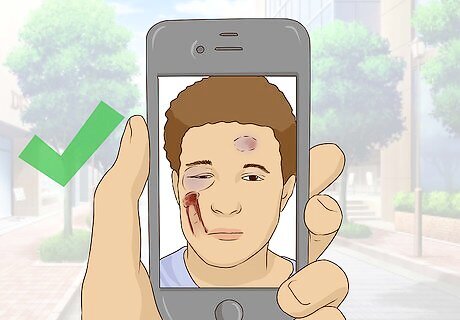
Document the abuse. It's important to obtain evidence that the abuse is happening. Doing so will help build a case against your wife, and ensure that you're not the one who's accused of abuse. Write down dates and times when the abuse happens. Take photographs of your injury and see a doctor to have the incident included in your medical record. If another adult witnessed the abuse, ask for an account for your records. If your wife sends abusive text messages or emails, save them. If the abuse is emotional, try to describe what your wife does in as much detail as you can.
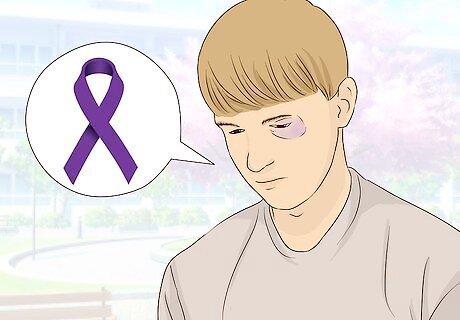
Reach out to community resources. Contact local domestic violence programs to see if they can offer help in getting away from your abusive wife. Many such programs cater to women. However, you should be able to locate some community programs that assist men, if you are a male victim of domestic violence. Such programs can help you plan your escape, offer support, and provide legal aid so that you can obtain an order of protection against your wife. If you have children, they may help you get temporary custody (as long as the abuse is well-documented). For more help finding resources, contact the National Domestic Violence Hotline at 1-800-799-7233.
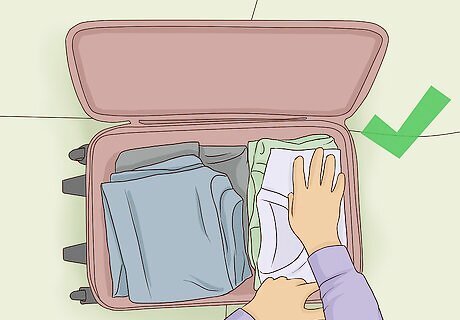
Prepare a "go" bag. In the heat of the moment, you won't be able to gather the practical items needed to leave your wife. Instead, pack bags containing what you and your children will need ahead of time. Your bags might include clothing, cash, and important documents, such as insurance cards and birth certificates. If you plan to take your children, go over the exit plan with them ahead of time. Consider their ages when explaining the purpose of the plan to them.

Identify your emergency contacts. Think about where you will go and who you will call when you decide to leave your abusive wife. Prepare a list of emergency phone numbers and contact info for your close friends and family. Let your emergency contacts know your exit plan. You might need to get a person to pick you up if you don't have a vehicle. Then, you will need to determine where you will go, such as a shelter or the home of a relative.

Don't tell your wife where you are. Once you have decided to leave the abuser, avoid letting her know your whereabouts as doing so could be dangerous for you and your children. To keep your whereabouts a secret, it might be best to go to a shelter or a relative's home that your spouse doesn't know about. That way, it's less likely that she will find you. You should also avoid contacting her after leaving. Leave any further discussions to the police or your legal representative.
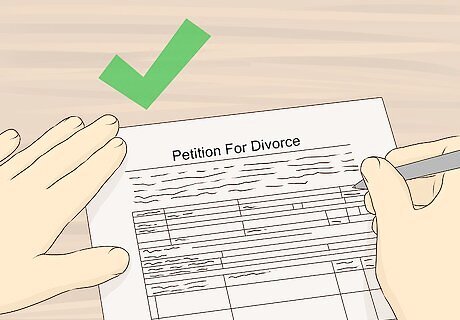
File for a divorce if you suspect your wife will continue the abuse. Abusive partners rarely change. However, if your wife admits her behavior is wrong and agrees to get professional help, there may be hope for your marriage. If your spouse denies the abuse or refuses to change, the healthiest choice for you is to file for divorce. If you would like to end your marriage with an abusive wife, talk to a lawyer to find out your legal rights. Depending on where you live, you may have to live apart from your wife for a period of time before a divorce will be granted. Having evidence and witnesses present to testify to the abuse helps your case because it won't just be your word against your wife's. Do not jump back into the relationship based on her promises to change. A temporary separation may be necessary to bring about the change.
Getting Support
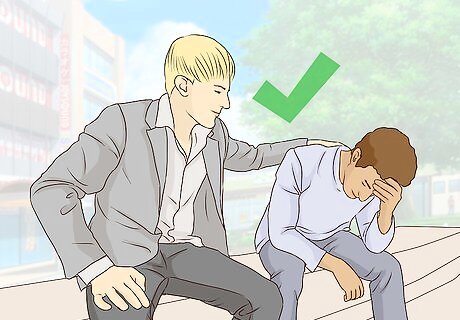
Contact friends and family. Talk to your loved ones about what's happening at home. Ask them for financial assistance, a place to stay, or a shoulder to cry on, if you need that, too. If you are a male victim of domestic violence, you may feel embarrassed about the abuse. You shouldn't be. Keeping the abuse a secret will only lead to further isolation and lack of support.

See a counselor. Professional counseling is a smart option for victims of abuse. Whether you decide to stay or leave, you may struggle to come to grips with your situation and feel confused as to how you should move forward. A counselor can offer practical guidance and support. Ask your family doctor for a referral to a mental health counselor or ask for recommendations from the staff at your domestic violence shelter.
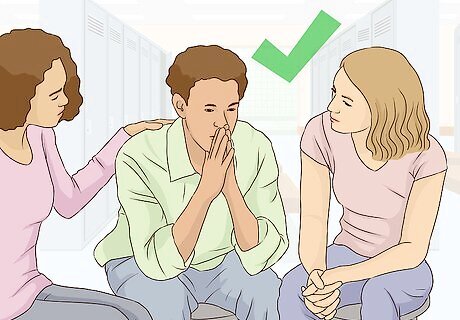
Join a support group. You may feel less isolated in your situation if you reach out to others who understand. Look up domestic violence support groups in your area or online. Group members may help you come to terms with the abuse and offer practical advice, such as learning to be a single parent or finding lawyers to handle a divorce.

Build a self-care routine to heal. Abuse leaves emotional scars, even if the physical ones have healed. You can recover from domestic abuse by adopting healthy practices that help you to nurture and express yourself. Add nourishing physical activities to your daily routine like yoga, dance, or boxing. Do relaxation techniques, such as deep breathing or mindfulness meditation. You might also enjoy creative pursuits like writing, painting, coloring apps, or online puzzles or games.




















Comments
0 comment